Have you ever spent a few minutes browsing the dozens of options in the toothpaste aisle and just grabbed whatever looked best?
We know there are an overwhelming number of choices, but we’ve got some tips to make it easier for you to find the best toothpaste for your needs. In this article, we’ve put together 7 tips on how to choose the right toothpaste for your oral health needs so you can make an informed, confident choice.
Tips on How to Choose the Right Toothpaste
-
Make Sure It Has Fluoride
Almost any toothpaste you buy in Australia will contain fluoride. The Australian Dental Association recommends brushing with a fluoride toothpaste twice a day to fight cavities.
Fluoride has been proven to strengthen the outer surface of teeth, helping to fortify them against decay and cavities.
Many natural toothpaste formulas do not contain fluoride, so keep this in mind when you are looking through the options.
-
Look for ADA Approved Toothpastes
An ADA approval seal means the toothpaste has been verified to be safe and effective by the Australian Dental Association.
The Australian Dental Association offers reliable oral health education and information and is dedicated to ensuring shoppers can easily identify a toothpaste’s safety and efficacy by spotting the ADA seal.
-
Always Read the Label
Reading the ingredient label on toothpaste and understanding the ingredients can be helpful in the selection process.
Along with making sure your toothpaste contains fluoride, you can also keep these factors in mind:
- Avoid harsh abrasives as they can damage tooth enamel
- Check if the toothpaste is clearly labeled for older children or adults
- If you have sensitive teeth, check the toothpaste ingredient label for either potassium nitrate or strontium chloride. Both of these ingredients are intended to provide a desensitising effect that is helpful if you have tooth sensitivity.
As always, ask your dentist for recommendations for toothpaste for teeth sensitivity if you are struggling to find a good option.
-
Identify Your Dental Needs and Goals
When choosing a toothpaste, you can narrow down your options by identifying any specific dental need or goals you have.
You may want to consider options such as:
- A whitening toothpaste to help remove surface stains from things like coffee or tea (ask your dentist how long you can safely use whitening toothpaste for as they can be on the abrasive side)
- A tartar control toothpaste if you struggle with tartar buildup (you’ll still need regular professional cleanings to remove plaque and tartar, but this may help in the meantime)
- A sensitive toothpaste if you deal with sensitivity issues (make sure to mention any sensitivity issues to your dentist to ensure there isn’t an underlying oral health issue causing your teeth sensitivity)
-
Take Age Into Account
When considering the right toothpaste to buy, take age into account. Children should use a child-specific toothpaste and always be supervised until they can brush their teeth safely and effectively on their own. Just like with adult toothpaste, look for a child’s toothpaste with the ADA seal.
The big factor with kids is making sure they do not swallow too much toothpaste. Use the recommended amount and teach them how to properly spit out any excess toothpaste after they brush.
-
Try Several Kinds
Sometimes, finding the right toothpaste comes down to trial and error. If needed, feel free to try several different brands of toothpaste to find the one you are most likely to use. You may like the consistency of a particular toothpaste or prefer the flavour of another brand.
The important thing is finding a toothpaste that you enjoy using to increase your chances of brushing twice a day.
-
Ask for Professional Recommendations
Your dentist will be able to give the best toothpaste recommendation. This is particularly true if you have a specific oral health concern, such as gum disease, very sensitive teeth, or if you wear dentures.
At 123 Dental, we are happy to chat with you about any of your specific oral health concerns and guide you in the direction of the right toothpaste for you. A professional recommendation can help ensure you are using a toothpaste that is most effective for your needs.
Your dentist can also assess your oral health and recommend a toothpaste with a higher fluoride concentration if you are at a higher risk of tooth decay or gum disease.
Incorporate Your Toothpaste Into a Good Oral Health Routine
An ADA-approved toothpaste with fluoride is a great start to a healthy oral hygiene routine.
To complete a good oral hygiene routine, be sure to:
- Brush using gentle, circular motions twice a day for two minutes
- Floss every day
- See your dentist for regular checkups at least twice a year (or as recommended by your dentist)
- Eat a balanced diet featuring a variety of whole foods, fruits, and veggies
- Limit your intake of sugary or acidic foods and drinks
- Avoid frequent snacking
- Replace your toothbrush every three to four months and learn how to care for your toothbrush to make sure it is hygienic and cleaning your teeth effectively
- Stay hydrated (water is good for your body and your teeth as it helps promote saliva production and rinse away food debris)
FAQs About Toothpaste
Does toothpaste expire?
Yes, toothpaste does expire. Typically, toothpaste will have an expiration date about two years after its manufacture date. When in doubt, check your toothpaste tube to ensure it hasn’t expired.
How much toothpaste should I use?
A pea-sized amount is all the toothpaste you need. This is also true for children who brush on their own. If you are using more than a pea-sized amount, it does not increase the effectiveness of the toothpaste — it’s just a waste.
Does whitening toothpaste work?
Whitening toothpastes have exploded in popularity in recent years. They can certainly offer a subtle degree of tooth whitening, although it can take a while to notice the effect.
Often, whitening toothpaste can be a good way to maintain professional whitening results or to subtly brighten surface stains.
Ask your dentist about whether or not you are a good candidate for whitening toothpaste. For individuals with tooth sensitivity issues or certain bonding materials, ingredients such as peroxide can exacerbate the issue.
Should I avoid fluoride in toothpaste?
We strongly recommend using a toothpaste containing fluoride. Fluoride is a proven way to protect your teeth against cavities and decay.
What is the best toothpaste for kids?
We often get asked, “what is the best toothpaste for kids?”. The answer comes down to a toothpaste they enjoy using!
With kids, it is all about establishing a positive association with brushing their teeth and caring for their oral health.
I always recommend allowing kids to help when picking out a toothbrush or toothpaste. They like to be involved and seem to be more willing to use the product they pick out.
I also recommended opting for a toothpaste made specifically for children. Adult toothpaste tends to have too strong of a taste for children. A child specific toothpaste will have age appropriate fluoride levels and usually fun flavours, such as strawberry or bubblegum, to choose from.
You don’t need to give your child free reign over the toothpaste aisle. You can select a few appropriate toothpastes and allow them to choose between two or three options. It can be helpful to have a toothbrush that features a fun TV or movie character or bright colours.
When can my child start using adult toothpaste?
A child can typically start using adult toothpaste once they can effectively brush all surfaces of their teeth and spit out the excess toothpaste, typically around age 6 or 7.
Should I rinse after brushing with toothpaste?
Although many of us were taught to rinse after brushing, we do not recommend it. Instead, we recommend simply spitting out excess toothpaste rather than rinsing your mouth with water.
This practice can help fortify your teeth against decay by leaving a thin layer of fluoride on your teeth. This habit can be especially helpful for individuals who are prone to gum disease.
Should I use a manual or electric toothbrush?
Just as it can be tricky to choose the right toothpaste, many of our patients ask us if they should be using a manual or electric toothbrush.
Need Professional Recommendations on the Best Toothpaste for You?
The right toothpaste is a key part of a good oral hygiene routine. Along with using the right toothpaste, make sure to see your dentist regularly for general checkups, brush twice daily, and floss every day to keep your smile healthy and bright.
If you aren’t sure which toothpaste is best for you, we are happy to offer some personalised recommendations.
Please contact us to set up a consultation and we’ll gladly help you find a toothpaste that cleans your teeth effectively, has the proper amount of fluoride, and fits your oral health needs and goals.


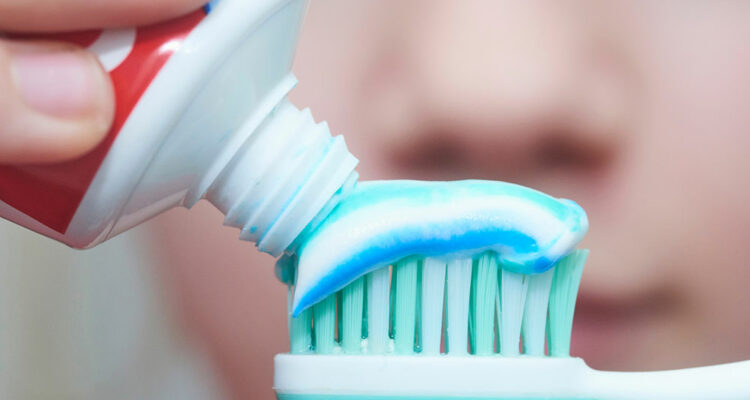
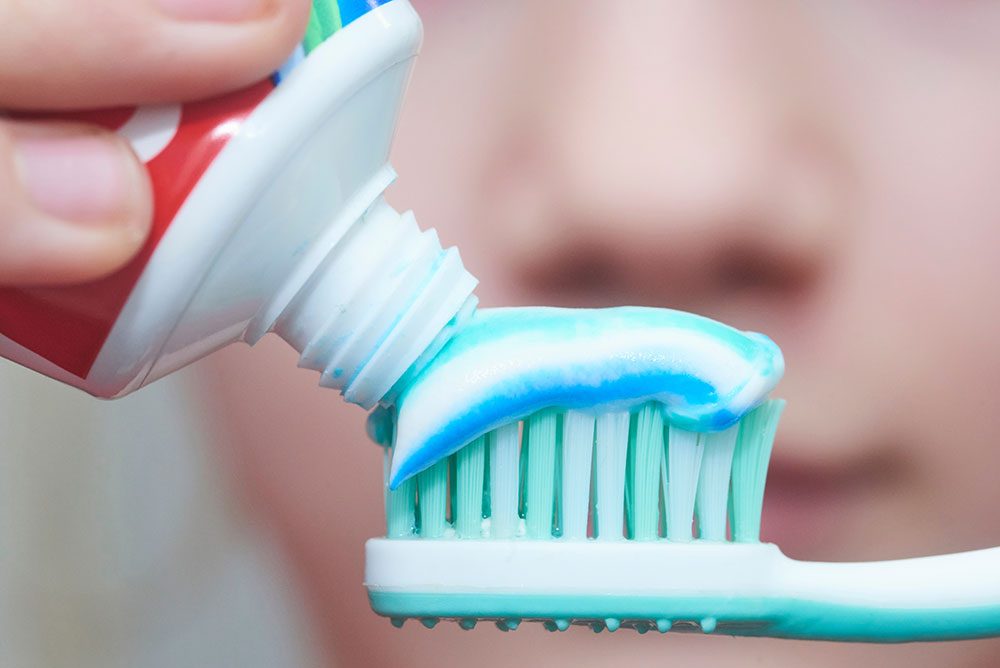
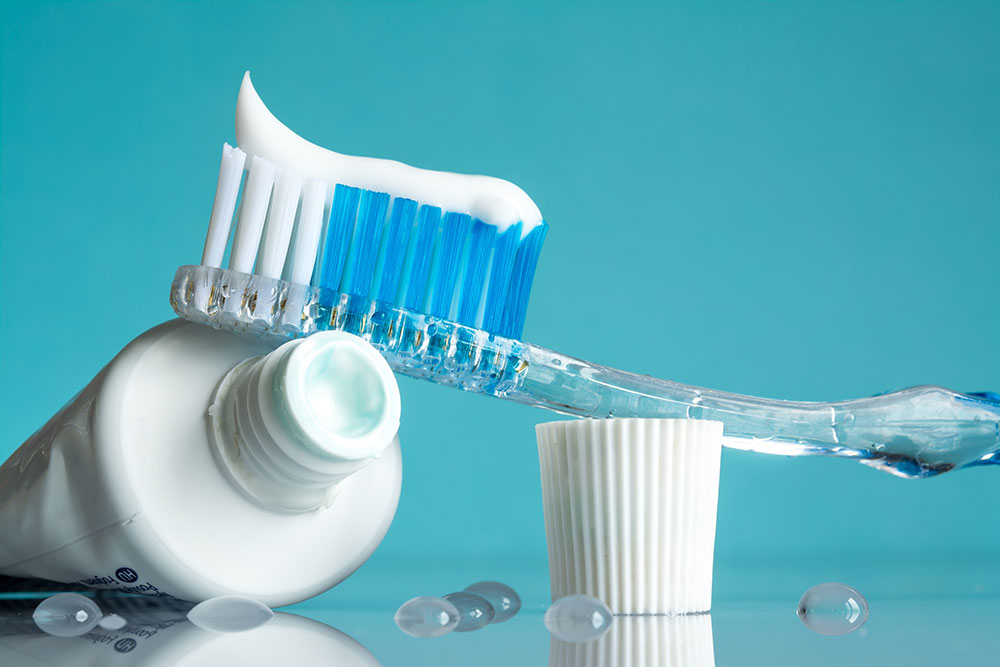
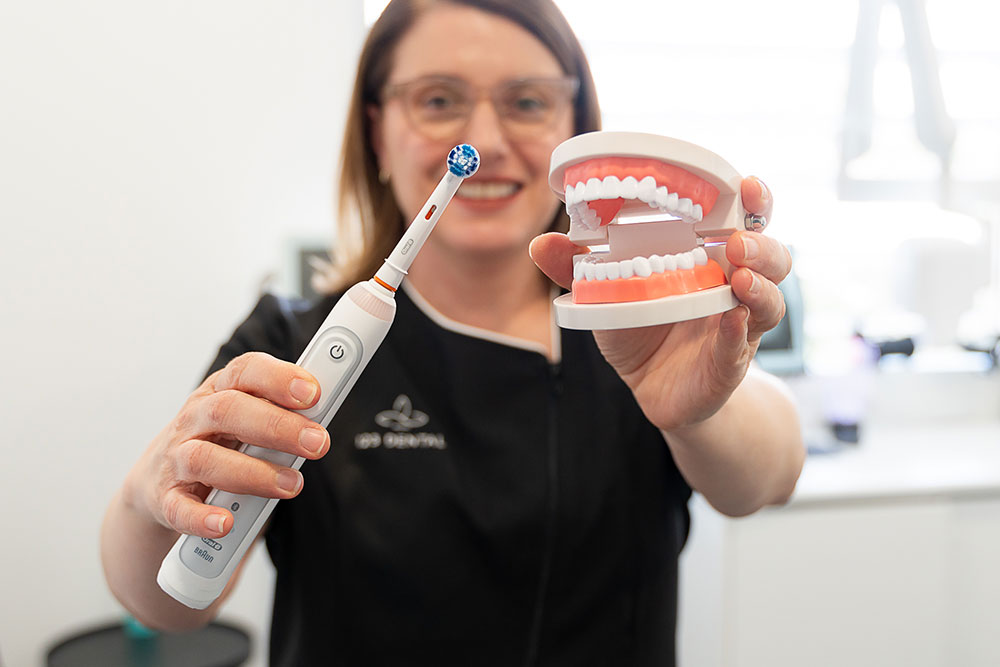

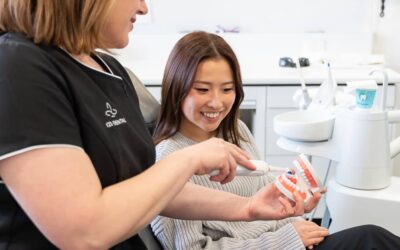

 Hi, you’re chatting with Chloe. If you could please fill out all your details below, I will be in contact with you shortly.
Hi, you’re chatting with Chloe. If you could please fill out all your details below, I will be in contact with you shortly.